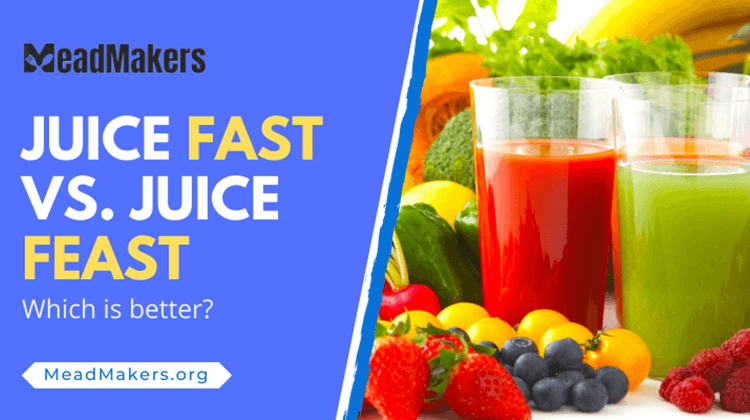The Truth about Juicing – Everything You Need to Know
This article will discuss the truth about juicing.
According to experts, consuming a diet rich in fruits and vegetables has a direct impact on your general health. Juicing caught the attention of health advocates all over the world when it first became popular, and it has only risen in popularity over the last few years.
Everyone these days seems to be jumping on the health bandwagon. With promises of weight loss, increased energy, healing, and the ability to prevent the need to binge on unhealthy foods, who wouldn’t want to hop on board?
This is a wonderful way for reaching all of those goals when done correctly. Is, on the other hand, juicing genuinely useful or just a fad? Let’s look at this in more detail further down.
What is Juicing?
Masticating juicers crush and press the produce against a mesh screen to separate the juice from the pulp. A centrifugal juicer pulverizes your vegetables before separating the juice from the pulp through a mesh screen.
Using a juicer, preferably a slow, masticating type – the user separates and extracts juice from a variety of fruits, leaving behind key enzymes and vitamins that humans need to stay healthy.
It’s quite acceptable to admit that you’re unlikely to consume the recommended daily servings. Using a juicer is the most convenient option for consumers to compensate for these nutrients.
Related: Juicing 101: Juicing for Beginners Guide
When and for how long do you juice?
Every person is distinct. As a result, there are no hard and fast rules for when to juice and for how long. Some people use it on a regular basis as a cleanse to get rid of toxins that have built up over time in their systems.
Some people fast for three days, while others fast for a week or more. It’s a personal decision based on your preferences and how fast it affects your body.
Once a week, fasting for 24 hours is quite beneficial since it cleanses and revitalizes your vitality. If you decide to fast every now and again, aim for a 72-hour period for optimum results.
Some people take it on a daily basis to complement their diet with vegetables they wouldn’t normally eat. Kids can acquire a constant supply of antioxidants and minerals that they wouldn’t get otherwise by supplementing.
You can replace a meal with juice, but make sure you have a well-balanced diet throughout the day.
What are the Benefits of Juicing?
Juicing gives your diet variety while also ensuring that you get the nutrients you need to stay healthy. The following are some of the advantages of juicing:
Weight Loss: Juicing can help you shed a lot of weight when combined with regular exercise. The majority of the diet should consist of dark leafy greens, other vegetables, and low-sugar fruits.
Please note that this is not a recommendation for depriving your body of essential nutrients in order to lose weight. Never, ever, ever, ever, ever, ever, ever, ever, ever, ever, ever, ever Always seek medical advice.
What matters most is that you pay attention to how your body reacts.
Energy Levels: As you keep juicing on a daily basis, you will notice a rise in your energy levels. Even a single eight-ounce glass of vegetable juice each day can boost your energy levels.
This is an excellent method for breaking your coffee addiction.
Variety: Do you recall all of the vegetables that you despise? You can mask their flavor by juicing them with other vegetables or fruits while still reaping the advantages.
Immune System: It not only raises your energy levels but also strengthens your immune system with a variety of phytochemicals, including flavonoids, which are important in preventing cancer, cardiovascular disease, and other diseases.
Optimal Absorption: A huge number of people have digestive issues that make it difficult for them to absorb nutrients from whole foods.
Juicing eliminates the fiber, allowing for a more concentrated flow of nutrients that are easier to absorb. Fiber, on the other hand, remains an important component of your diet. Don’t completely cut out fiber from your diet.
Juice Wisely & Safely
Before incorporating juicing into your daily routine, there are a number of hazards and important factors to consider. Here are some tips to help you make the most of your juicing:
Fruit Juice
Sugar and calorie content are high in apples and oranges, for example. If you juice fruits that are high in sugar, you won’t lose weight or reap the full benefits of juicing.
Vegetable juices are high in nutrients yet low in sugar and calories. Green juice can be bitter at first, but you can sweeten it with an apple or a few carrots until you grow used to it.
Don’t overdo it with the fruit in your dish. It cannot be overstated how important it is to focus on drinking green juice rather than fruit juice. Fruit juice is a delightful treat on rare occasions, but it should not be consumed every day.
Complete Nutrition
The juice will not be able to substitute your meals for long periods of time because it lacks complete nutrition. A well-balanced diet should include protein, fiber, and fat, especially if you exercise frequently.
A protein-deficient diet causes muscle fatigue, tissue breakdown, prolonged recovery times, and other negative effects. Healthy fats are beneficial to blood cholesterol levels, insulin levels, fat-soluble vitamin transporters, mineral absorption, and many other things.
Fiber slows the breakdown of the foods you eat, making you feel full and allowing your blood sugar levels to stay in check. Fiber has been shown to help with a variety of conditions, including skin health, heart health, hemorrhoids, and gall/kidney stones.
Related: Juicing for Diabetes: Is It Safe? Let’s Find Out
Consider adding extra protein and fat to your juice if you plan on juicing for more than three days to improve your health and vitality. For example, chia seeds or coconut oil can be used.
To add more fiber to your juice, return some of the pulp to it. For longer lengths of time, you will be more satisfied. If you completely eliminate fiber from your diet, you must gradually reintroduce it; otherwise, your digestive system will become clogged.
Finally, be sure to include a variety of vegetables in your mix (think rainbow colors) to ensure that you’re getting all of your daily nutrients.
Conclusion
While juicing isn’t a diet or a long-term treatment for health problems, it’s far from a fad. It’s adaptable enough to fit into your normal diet or to be used as part of a juicing cleanse.
There are several nutritious and delectable cuisines to choose from. If you add regular juicing into your diet, you will quickly realize that providing your body with a high level of antioxidants is one of the most helpful things you can do for your health.
Recommended Posts:
Juicing for Kids: Tips, Guidelines, and Recipes
Juicing During Pregnancy: The Most Comprehensive Guide
Is Your Juicer BPA-Free? How Does It Matter? Let’s Explore






